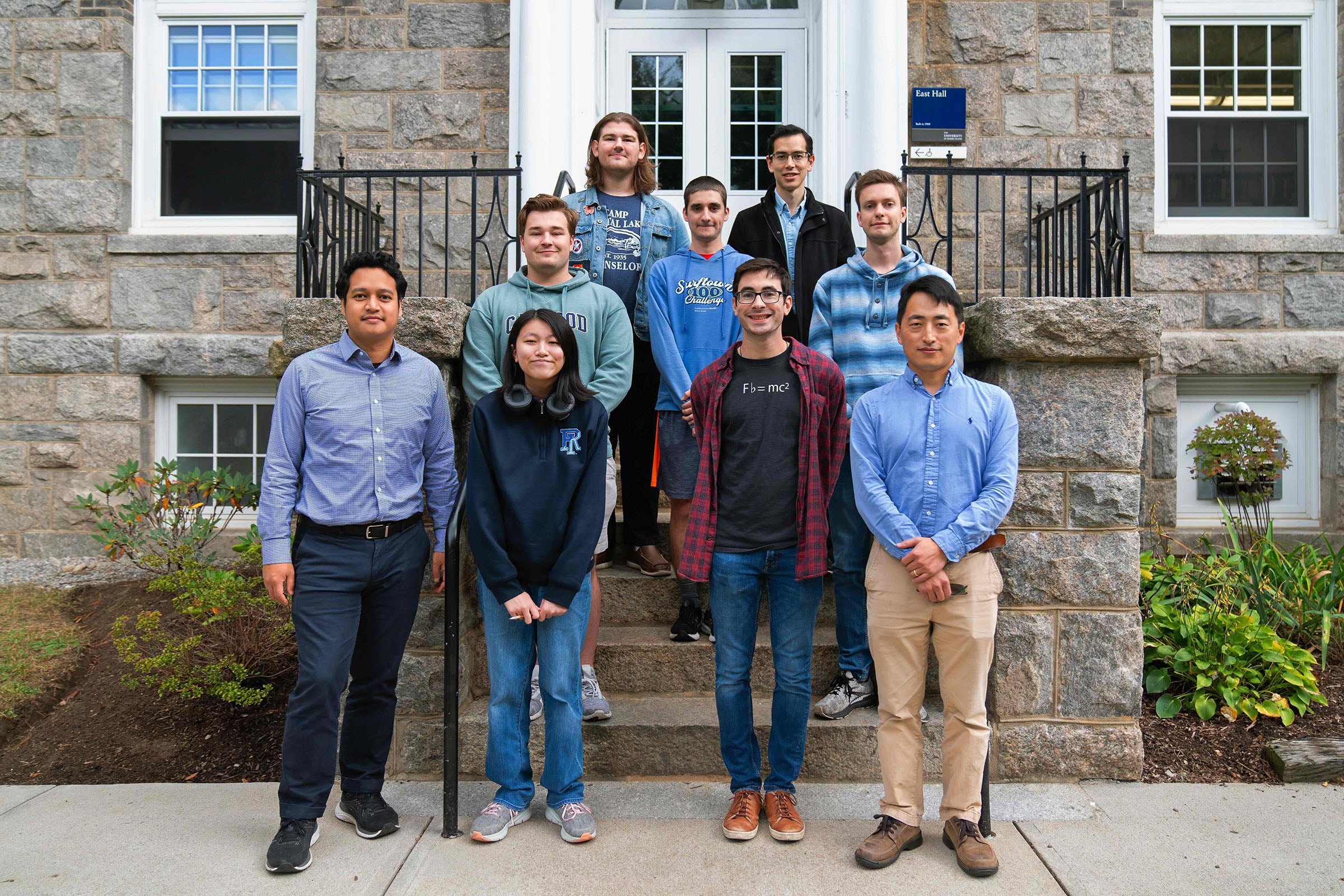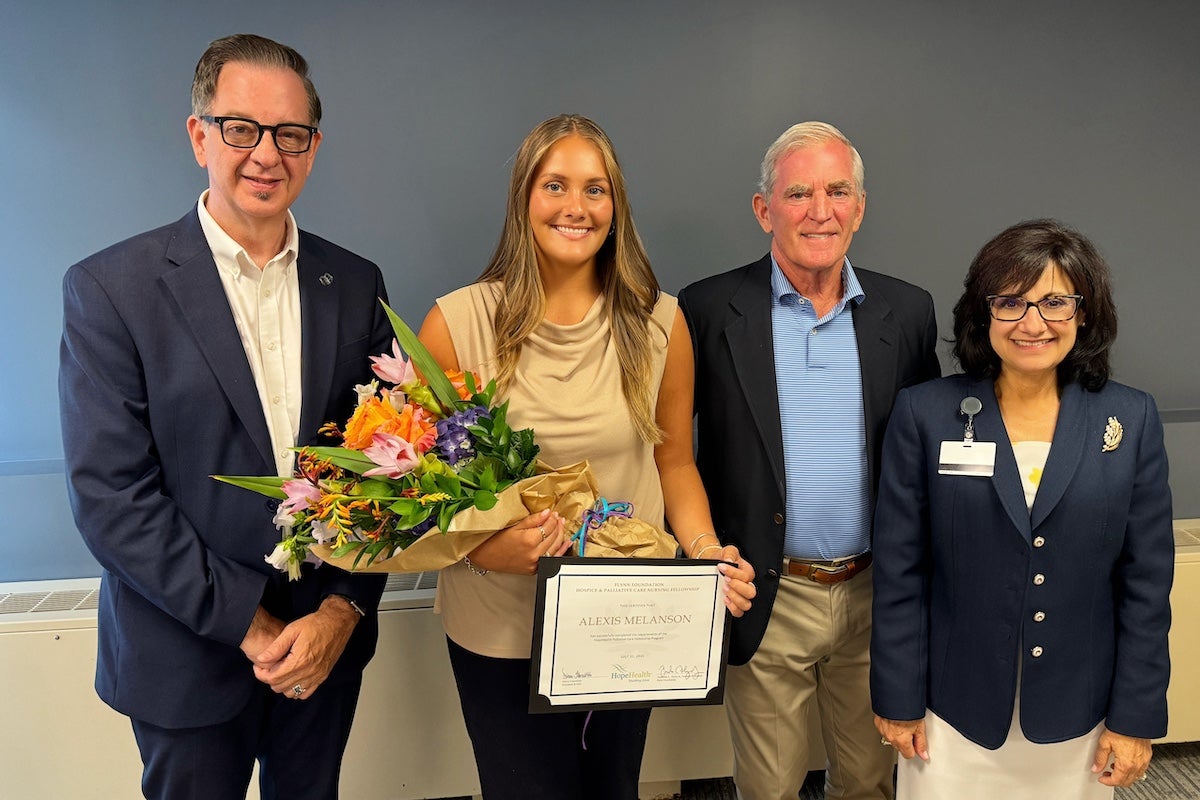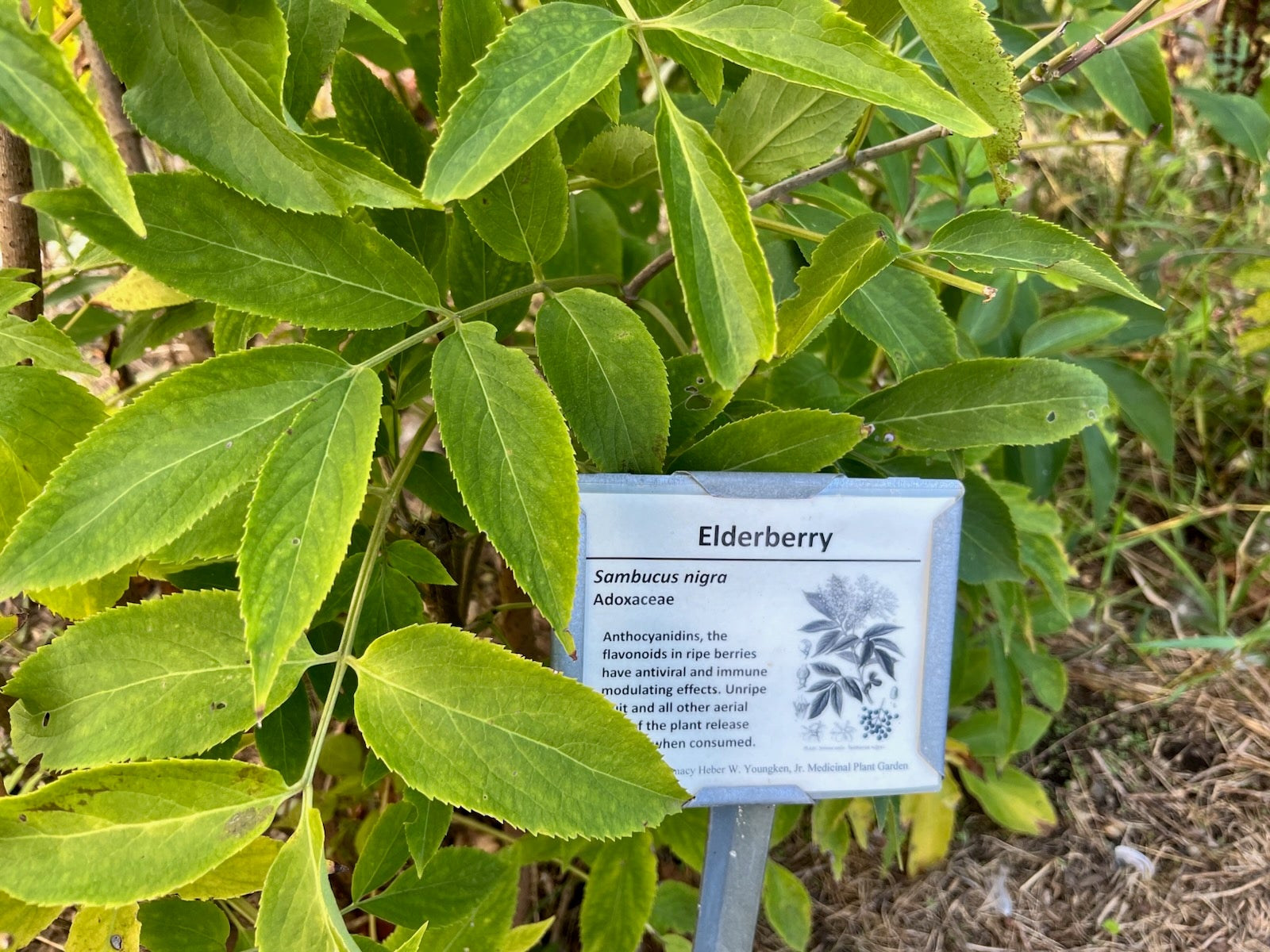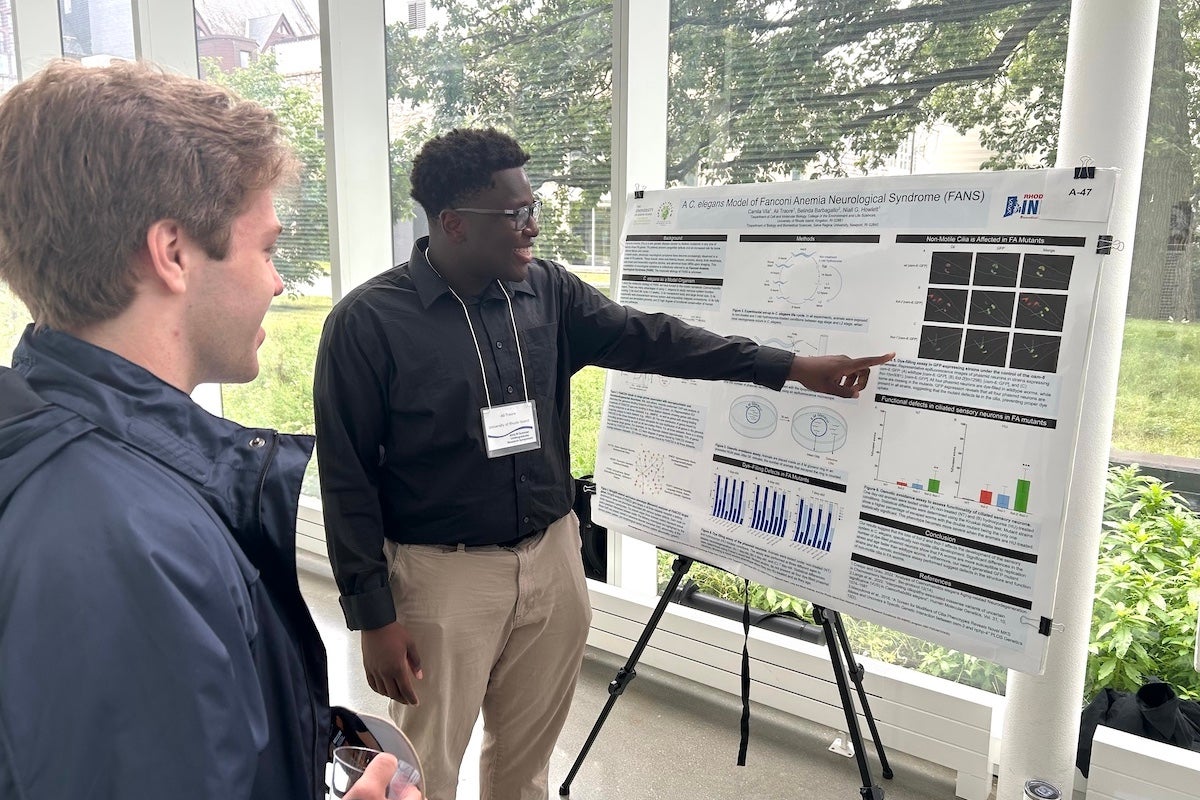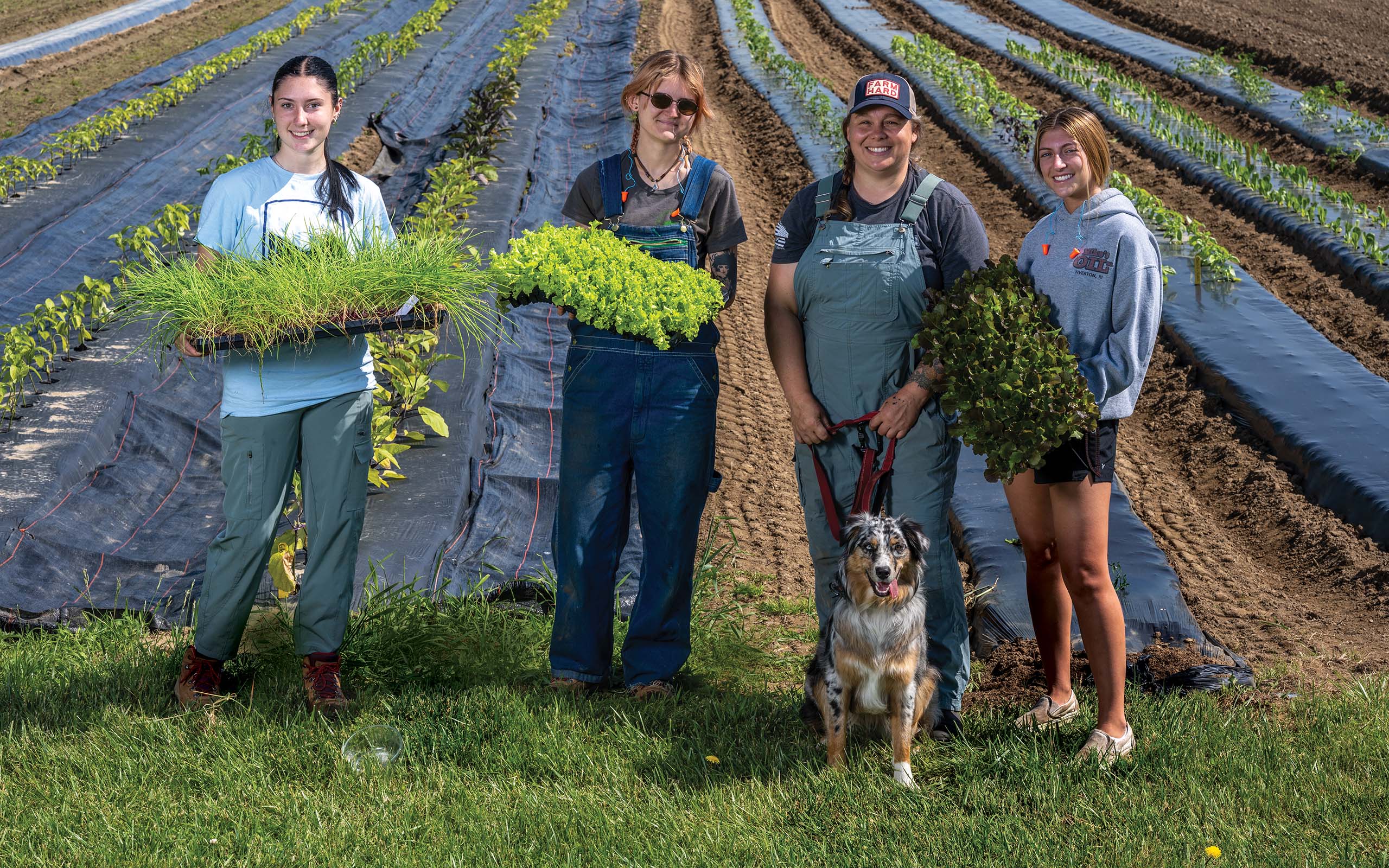URI physics professor receives NSF CAREER award for research in quantum information processing
KINGSTON, R.I. – Aug. 12, 2025 – University of Rhode Island physics professor Wenchao Ge has been awarded a National Science Foundation Faculty Early Career Development (CAREER) Program award to explore a novel technique for improving the performance of trapped-ion quantum information processors.
NSF CAREER recognition is one of the nation’s top awards for early-career faculty who have shown the potential to serve as academic role models in research and education and lead advances in the mission of their institution. The award comes with a five-year, $500,000 grant to support Ge’s research on “Trapped-ion Quantum Information Processing with Phonon Modulation.”
“I am deeply honored to receive this prestigious award from the NSF. It supports the development of junior faculty into leaders in the field,” said Ge, who joined URI in 2022 as an assistant professor of physics. “This is significant both for me and for URI’s Initiative on Quantum Computing.”
Quantum information processing, which harnesses the principles of quantum mechanics, has the potential to revolutionize numerous fields by enabling the performance of computation, communication, and sensing tasks beyond classical capabilities.
Quantum bits, or qubits, are the basic units of quantum information that enable quantum information processors to conduct computations that are currently impossible for today’s most powerful classical computers. Trapped ions provide one of the pristine qubit platforms for quantum information processing, Ge said.
In working with trapped ions, most of the applications involve controlling interactions between the ions by external collective motions – phonon modes – using lasers or microwave currents that generate the coupling between the qubits and the phonon modes. The challenge is to enhance the interactions between qubits without compromising them. To do that, Ge is exploring the modulation of those phonon modes in trapped ions as a way to improve interactions.
“In general, the qubits are charged particles trapped in an electromagnetic trap. Their interaction is too weak to mediate meaningful computation, or information processing,” he said. “To mediate effective qubit-qubit interactions, we use vibrations that are common to all the qubits.”
“If you increase the laser intensity that controls the qubits, we could make them interact faster,” he added. “But if you’re using a higher intensity laser, those lasers can cause more noise in the qubits, making the results less perfect. The phonon modulation technique provides a paradigm shift to enhance qubit-qubit interactions without requiring a stronger laser. At the end of the day, we expect to be able to enhance speed without degrading fidelity.”
The NSF CAREER grant will add to the two other NSF research grants Ge has received, which focus on quantum sensing and quantum resource theories, and quantum algorithms on near-term quantum computers. “These grants have been supporting my research group to explore fundamental physics of our nature and develop new ideas in quantum technologies,” said Ge.
Along with research, the NSF CAREER Award will support Ge’s long-term goals as an educator, including creating an introductory course in quantum information science for STEM students at URI. The award will also support his ambition to expand his current research group to include undergraduates. He also hopes to involve more high school students in quantum physics. In June, Ge hosted a quantum summer camp to introduce high school students to studying quantum physics; he plans to make the camp an annual outreach project.
“Summer camp is a good way to involve interested high school students in a crash course on quantum information science,” he said. “In addition, I plan to organize science activities for the general population in Rhode Island. These activities will include popular science lectures on quantum computing, games on quantum computing, and physics demos.”
“In the past, most of these programs have been for physicists or graduate students,” Ge added. “I want to lower the entry level so that more people can take the course and explore possible career opportunities with their expertise or major. It is important to me as an educator to not just do research in the ivory tower but also to educate and inspire younger generations.”
Latest All News
- URI nursing student gets hands-on experience in palliative careKINGSTON, R.I. — Aug. 12, 2025 —University of Rhode Island College of Nursing student Alexis Melanson is the latest participant in the Susan D. Flynn Palliative Care Undergraduate Fellowship. Melanson, a senior from Leominster, Mass., received a certificate of completion during a ceremony at HopeHealth Hospice Center in Providence on Aug. 1. The Center partners […]
- URI’s medicinal garden offers up-close look at the roots of modern medicine, open to the publicKINGSTON, R.I. – Aug. 12, 2025 – We don’t know if Heber W. Youngken Jr. was a Joni Mitchell fan but his namesake garden at the University of Rhode Island neatly reverses her 1970 hit, replacing a parking lot with a paradise. The garden is named after the College of Pharmacy’s founding dean, a pioneer […]
- Student researchers present dynamic biomedical studies during Summer Research SymposiumKINGSTON, R.I. — Aug. 7, 2025 — More than 350 students and faculty members from 10 colleges and universities around the state converged on the University of Rhode Island Aug. 1 to showcase 150 biomedical research projects they’ve spent the summer studying, as RI-INBRE, RI-EPSCoR-NEST, and Navy STEM hosted URI’s 21st annual Summer Research Symposium. […]
- URI Magazine Summer 2025Learn about a film bringing a mythic local tradition to life, URI's land-grant university mission, the mystery behind Isabella Stewart Gardner Museum's famed art heist—and much more.
- The Pickleball WavePickleball is America’s fastest growing sport; URI alumni, students, and faculty are riding the wave, too.
- A Debt to History – Why URI’s Land-Grant Mission Still MattersIt’s the “Why” of what we do at URI–ensuring research serves and positively impacts Rhode Island communities.



